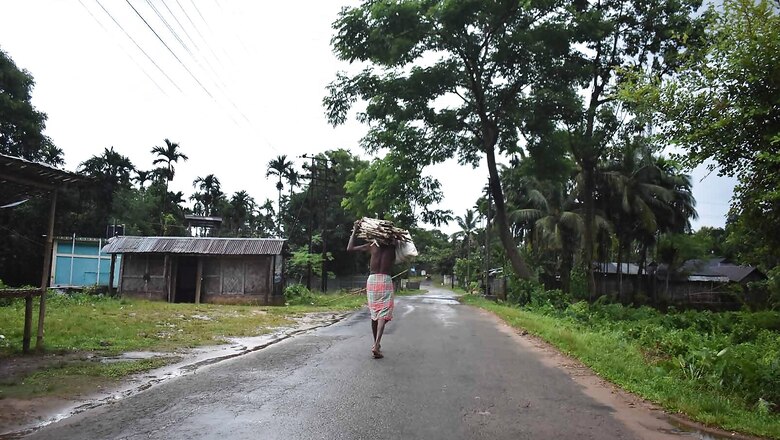
views
Once referred to as the capital of open defecation, we have surely come a long way since then with greater wins towards sanitation and hygiene. And some states and cities who have marched forward in achieving great results towards this, can serve as inspiration and hope to the rest of the country.
Take for example Mizoram and Sikkim which have now reported 100% access to toilets. In addition to that, Sikkim had the highest Menstrual Hygiene awareness at 100%. The credit goes to many people from the state who came together for this feat – IAS officers to community leaders to commoners living in villages, everyone has pitched in to make water, sanitation, and hygiene (WASH) facilities available in their surroundings.
In Assam, on the other hand, the authorities focused on social behaviour change communication and community participation for widespread awareness. Ground-level volunteers called Swacchagrahis, media, rallies, street plays and other mediums were extensively employed to reach out to the masses. There was a broad focus on integrating students and educational institutions to propel the movement forward.
Interestingly, the deep-rooted desire to maintain cleanliness is visible at the grassroots level. In the Rangsapara village in Sonitpur District, for instance, people have not missed a cleanliness drive in about 20 years. This is the cleanest village in all of Assam.
Another village in the state of Meghalaya has similar achievements to boast of. The Mawlynnong village was given the title of the cleanest village in Asia in 2003. Since then, Mawlynnong has maintained its high cleanliness standards. Every household in this hamlet has had a washroom since 2007. There are dustbins made of bamboo all over the village. Plastics and cigarettes are banned in this village, which is populated by members of the matriarchal Khasi tribe. Cleanliness has become a part of their everyday routine and culture now.
Community partnership and involvement in making WASH facilities accessible also helped transform villages in Nagaland. The people of Tekhouba village created an indigenous method to handle water scarcity. The village’s main water source was located 5.5 km away. Under the leadership of the local Water & Sanitation (WATSAN) committee and the village council, the community managed to get fencing, forest clearance, and labour force requirements. They also secured land for the water supply system via donation. A total of 553 households now receive water under the scheme. The stories of Vedami and Tsongphong villages are similar.
In Mizoram, cleaning efforts provided raw materials for development. Local agencies, NGOs, and communities got together to clean up the ‘Chitte Lui’ river in Aizwal. The river had turned into a garbage dump due to negligence for years. The people involved in the Save Chitte Lui Action Plan not only cleaned the river, but used the heaps of plastic they had collected to make the state’s first plastic road.
The small state of Tripura has also set an example for others when it comes to sanitation and cleanliness. It has ranked first among all the states in India with fewer than 100 Urban Local Bodies (ULBs) in the seventh edition of the Central government’s cleanliness survey.
In the Northeast region, people are actively integrating cleanliness into their daily routines and passing it on to generations ahead. Village by village, state by state, the entire region is becoming Swachh every day.
Mission Swachhta Aur Paani, a News 18 and Harpic India initiative, advocates the availability and usage of clean water and safe sanitation for all. Let’s all come together and join hands for Mission Swachhta Aur Paani- Mil Kar Lein Ye Zimmedari to ensure sustainable and inclusive sanitation. A grand Telethon will bring together government representatives, celebrities, artists, change makers, policy experts and youth icons to celebrate the cause on the occasion of World Toilet Day on November 19, 12 PM onwards. The telethon will be broadcast LIVE on CNN News18, News18 India, CNBC TV18 and CNBC Awaaz as well as the facebook, Twitter and Youtube handles of News18.
Know More: Mission Swachhta Aur Paani
Read all the Latest News here




















Comments
0 comment